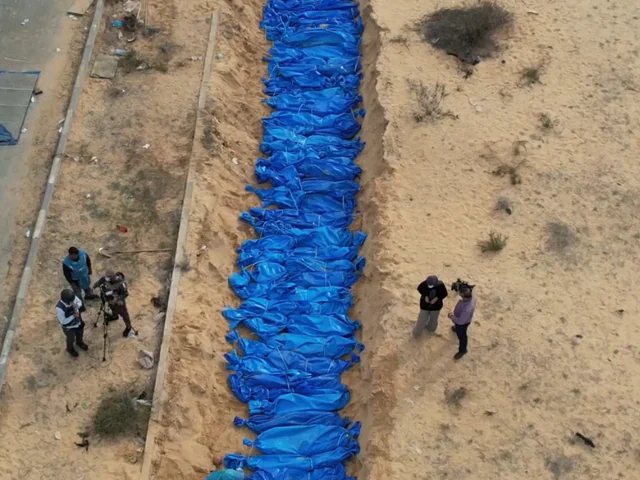In an extraordinary breach of national security protocol, the Trump administration’s most senior national security officials accidentally included journalist Jeffrey Goldberg, editor-in-chief of The Atlantic, in a private Signal group chat that contained detailed and classified U.S. military plans to bomb targets in Yemen.
The revelation, confirmed by both Goldberg’s firsthand account and a statement from the White House’s National Security Council, highlights an almost unthinkable level of recklessness within the Trump administration’s decision-making and communication processes. According to Goldberg, he was added to a Signal thread named the “Houthi PC small group” alongside the vice president, secretaries of defense and state, the CIA, and other senior Trump officials.
Goldberg initially suspected he was the target of a hoax or misinformation campaign. But within hours, the same war plans texted to him by Defense Secretary Pete Hegseth at 11:44 a.m. on March 15 were executed—with bombs falling on Yemen at 1:45 p.m., precisely as the group chat had outlined.
War Plans Shared in Detail—With a Journalist
The Signal thread revealed not just planning intentions, but specific targets, weapons packages, and attack sequencing—all shared in an unencrypted messaging app. Goldberg writes that he never received clearance or acknowledgment of inclusion, and never interacted with the group, which seemed unaware of his presence.
Despite the presence of names like “JD Vance,” “Marco Rubio,” “Tulsi Gabbard,” and “Stephen Miller,” all of whom appeared to use official accounts or were convincingly impersonated, no one noticed Goldberg’s presence in the group until after the operation had already begun.
The White House later confirmed the chain’s authenticity. National Security Council spokesman Brian Hughes told The Atlantic, “This appears to be an authentic message chain, and we are reviewing how an inadvertent number was added to the chain.” He added that “there were no threats to troops or national security,” a claim civil liberties experts have sharply contested.
“The Signal Chat Was Real. The Bombs Fell.”
Goldberg, stunned by the reality of the situation, waited in a supermarket parking lot to confirm whether the plans were real. They were. As the clock passed 1:45 p.m. EST, explosions were confirmed in Sanaa, the capital of Yemen.
The group then congratulated each other in the thread, celebrating what they called an “overwhelming response” to the Houthi threat, while openly discussing the political messaging and economic implications of the strikes. Goldberg removed himself from the group shortly thereafter.
At no point was Goldberg asked to leave or questioned about why he was there.
Espionage Act, Records Violations, and Political Fallout
According to multiple national security lawyers cited in the report, the use of Signal to coordinate military action—let alone share classified information—may constitute violations of the Espionage Act, as well as federal records laws. The use of disappearing messages and non-governmental communications channels further complicates legal compliance.
Officials involved, including Hegseth, Waltz, and others, have not publicly denied their involvement. Spokespersons for Vice President JD Vance and the National Security Council insisted that coordination was intact and claimed Goldberg’s inclusion was a mistake.
Yet Goldberg’s presence, the high-level nature of the discussion, and the fact that an editor-in-chief was sent classified war plans before they were enacted, underscore a collapse in operational security and a breakdown in the very structure of national defense communications.
The Crustian Daily’s Assessment
The Trump administration’s accidental leak of active war plans to a journalist, followed by its nonchalant confirmation, represents a new low in U.S. national security governance.
This is not just a blunder. This is proof of systemic failure, where encrypted apps have replaced classified channels, where war decisions are made in emoji-laced group chats, and where no one notices when a reporter is reading the plan live.
The fact that no legal or administrative consequences appear to be forthcoming sends a dangerous signal: operational recklessness is no longer a mistake—it’s the norm.
Author
Discover more from The Crustian Daily
Subscribe to get the latest posts sent to your email.













